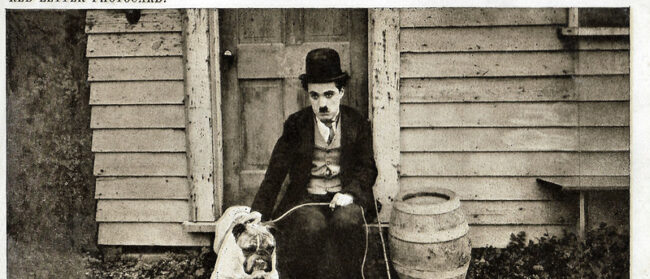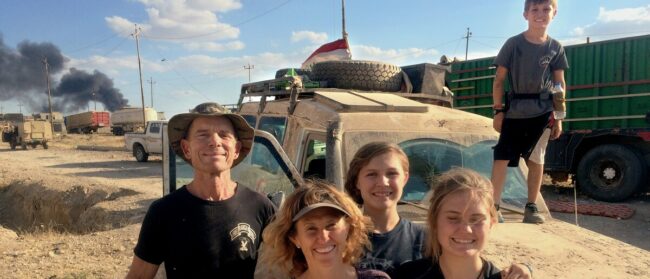General Suharto seized power in Indonesia in 1965 and immediately set about banning and demonising the Indonesian Communist Party. Over the next two years, at least 500,000 people with links to the party were killed, laying the groundwork for Suharto’s 32-year dictatorship. Joshua Oppenheimer’s new film, The Act of Killing, includes interviews with many of the men who carried out the purge, and dramatic reconstructions of their crimes. Here, the director discusses his film, the perpetrators and finding humanity where others would not dare to look.
You almost stumbled across this incredible story. How did The Act of Killing come about?
I first went to Indonesia in 2002 to make The Globalisation Tapes, a film about plantation workers struggling to organise a trade union. The main obstacle the workers faced was fear: there was a strong union until 1965, when its members were accused of being ‘communist’ and killed or imprisoned in the 1965-66 genocide. The people I spoke to explained that the killers were living all around us, that my next-door neighbour had killed one of the main characters’ aunts. The people were scared to talk about it but suggested that we interview the killers, saying that they would be happy – even proud – to speak to me. I was surprised, because normally criminals don’t boast of their crimes – unless, of course, nobody ever considered them crimes.
You interviewed more than 40 perpetrators for the film, but it all started with that murderous neighbour.
We began filming in front of my neighbour’s house and soon we were invited in. He was older, so I asked what he had done for a living. He answered, “I had been a security guard on the plantation, but was promoted to plantation manager because I exterminated 250 communist workers.” He then proceeded to demonstrate how he would beat the workers unconscious, and then drown them in an irrigation ditch. We wanted to know if other Indonesian killers spoke as casually and as boastfully about what they had done, and if so, why? For the next two years, I contacted every perpetrator I could, and found that this first man’s boasting was typical.
Despite its roots in a historic atrocity, you argue that this is not a film about the past.
I realised the story was not what happened in 1965, but rather what is happening now, in the present, that means these men feel comfortable boasting about their crimes. Obviously, nobody had ever said they were criminals. On the contrary, crimes against humanity were being celebrated.
This is what happens when perpetrators win, when mass murder and brutality are mythologised as heroic. We assume that perpetrators are normally held to account, or at least defeated, like the Nazis, the Khmer Rouge, the Hutu extremists. But perhaps those are unusual cases, the exception to the rule. Aren’t most societies built on violence celebrated as heroism?
The main protagonist, Anwar, is a very interesting and conflicted man. How did you want to portray him?
By the time I met Anwar I was explaining the point of the film very openly. I would say, “You have participated in one of the largest killings in recent human history. Your entire society is based on it. Your lives are shaped by it. You are eager to show me what you have done. Go ahead and show me.” The men in the film were not tricked into it. Anwar has seen the film and is very moved by it, and remains loyal to it.
I never forgot my condemnation of the perpetrators’ crimes, but I refuse to condemn them as ‘bad human beings’. The world is not divided into good and bad people. There are only humans, and some of us make terrible choices. When we make the leap from ‘human beings who commit evil’ to ‘evil people’, we denounce a whole person, and we feel entitled to denounce because we assume that we, ourselves, are good. If we build this fantasy, in which we are good, and all we have to do to prevent evil is exterminate the ‘bad guys’, how can we learn from history and prevent this from happening again?
Nonetheless, it is easy to be shocked by the attitude of the perpetrators.
The justification and even celebration of mass killings in the film seems like a sign that they feel no guilt, that they are inhuman. I think it’s the opposite. Murder is a human act, we’re the only species that does this and, if you can, justifying it is also human. These people can justify it, so they do, and this is actually a symptom of their own conscience and their own humanity. If you kill one person and justify it, and then the government asks you to kill another person for the same reason… Well, if you refuse, it’s like admitting it was wrong the first time.
You have said that one of the most moving scenes for Indonesians is near the end, when Anwar imagines his victims thanking him for killing them and sending them to heaven. Why is that?
Although I often see Indonesian viewers crying to that scene, they are also laughing at the same time. It is a joyful, cathartic laugh. It suggests that, finally, they see the underlying logic of their regime so nakedly portrayed by the killers themselves. The killers have taken off their masks, the regime has taken off its mask, and said, “Yes, we are shamelessly a country where we killed a million people. We got away with it, we’ve been in power ever since, and the victims should thank us for it. That’s the kind of morality our system has.”
It’s chilling, but it’s also joyful to see that exposed once and for all. Once it’s exposed there’s no going back and pretending that it’s not the case.
What has the reaction to the film been like in Indonesia?
The reaction in Indonesia has been positive and transformative beyond our wildest dreams. The film has forever broken the silence on the 1965-66 genocide. Everyone knew the country’s ‘democracy’ was a corrupt charade built on genocide; that any given politician might be a gangster or a mass-murderer – but no one dared say so.


